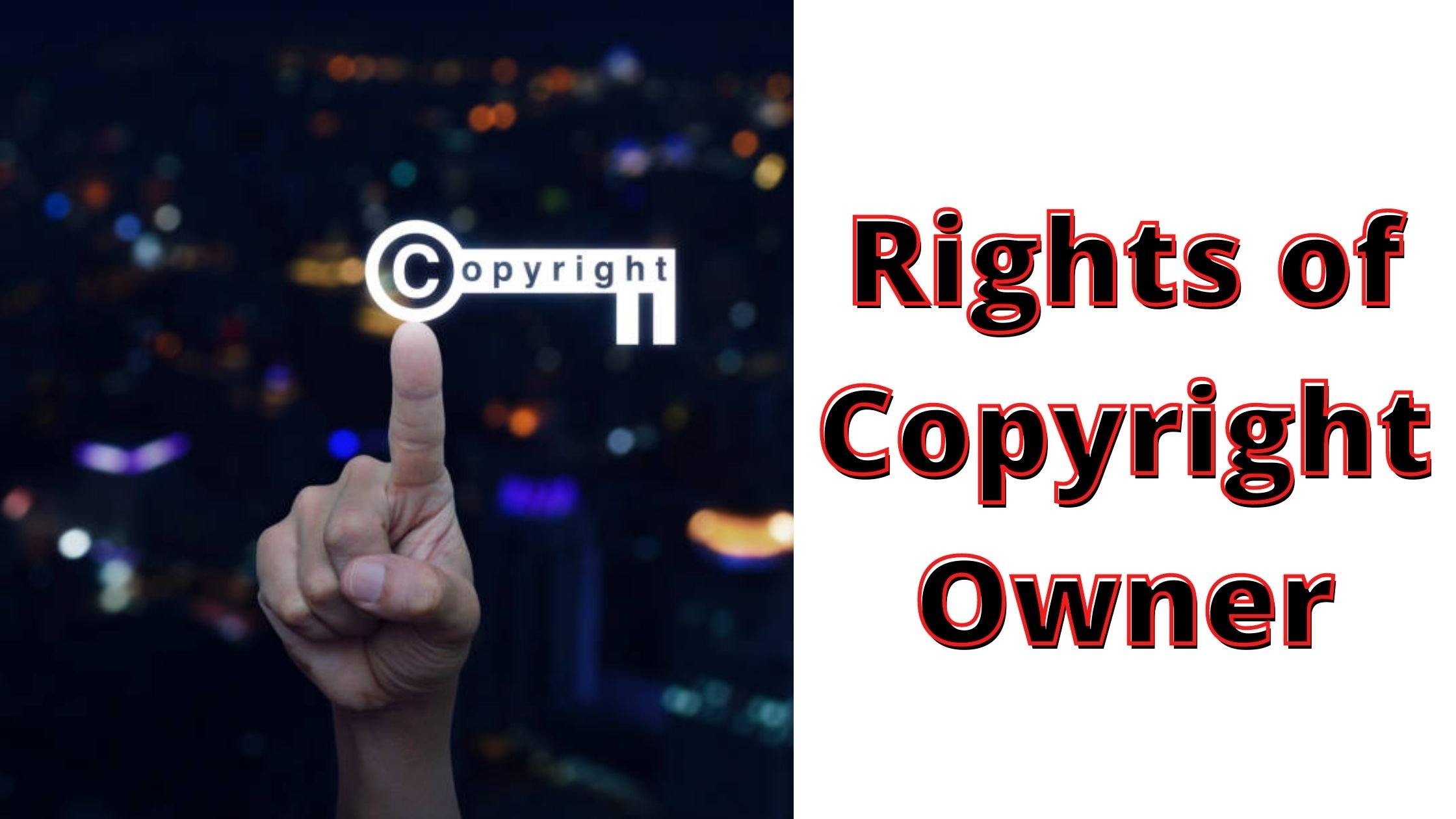THE RIGHTS OF A COPYRIGHT OWNER
In India, The Copyright Act, 1957 provides copyright protection to the people who create original content. It protects the original work from copyright infringement by following two forms: • Economic rights • Moral Rights

THE RIGHTS OF A COPYRIGHT OWNER
In India, The Copyright Act, 1957 provides copyright protection to the people who create original content. It protects the original work from copyright infringement by following two forms:
-
Economic rights
-
Moral Rights
Rights of the Copyright Owner
-
Right to make Derivative Works: Copyright has the right to use its work in different ways, such as creating, adaptations or translations. One instance of adaptation is making a film based on a book, so the owner's permission is mandatory here to make any derivative work. Some other rights of the owner often come into play in these cases, such as the right to dignity that protects the owner from deformation, default or alteration of his work in such a way that it is detrimental to his reputation.
-
Right to Publicly Perform: The owner of the copyright has the right to perform his works publicly. He can perform dramas based on his work, for instance, or perform at concerts, etc. This also involves the owner's right to broadcast his work. This involves the owner's right to make his work available on the internet to the public. It helps the owner to specify the terms and conditions for access to his job.
-
Right of Reproduction: This right authorizes the person with such copyright to make any sort of copies of the protected work. A song on a portable computer, or any sound and visual recording, may be regarded as a replication of the material in the modern sense of copying. The author's permission is required prior to copying, unless it can be demonstrated that such copying is not intended to yield any commercial advantages.
-
Right to Distribute: The right to distribute is an inseparable part of the rights of an owner. The person who owns the copyright can distribute his work in any way he considers fit. The owner is therefore entitled, to pass the entire or certain rights in favour of some other person. He may, for example, entitle any person to translate his work.
-
Right to Follow: In general, this right is granted only to authors and artists. This helps the writers to get a percentage of their work 's subsequent sales and is referred to as Droit De Suite or Right to Follow. The right is also open to artists to resell their work.
-
Sui-Generis Rights: The ordinary copyright law often fails to protect the computer software and databases since the essential element of creativity is not present in such databases. There was, therefore, a need for new legislation to secure such databases and applications. To address the problem of resolving databases as a whole, the rule of sui generis was introduced. A database is a collection or arrangement of information that may not be creative; protection from unauthorized copying may still be needed. This could, however, require such changes to be exempt from certain copyright protection, such as the making of copies. Such a right to the database remains for a span of 15 years.
-
Right of Paternity: The Right of Paternity or Attribution grants the owner of copyright a right to claim the work's authorship. A copyright proprietor may claim due credit for all of his works under the Right of Paternity. Therefore, if a movie is made by an author based on a novel, and he has not been given proper credit in it, he will sue the producers to recognise his work.
-
Private Copying: This is an exception to the rights to reproduction which the owner has attained. Under this right, if it is proven that such copying is for educational purposes and that there is no commercial motive behind the creation of such copies, any person can make copies of the copyright-protected work.
In conclusion, it is perhaps said that copyright law properly preserves the copyright owners' rights. The legislation has kept pace with the changing times, like digital reproduction and sui generis rights, and has accommodated a variety of new things in its sphere. India has also risen to the challenge from time to time and has revised its copyright law.
BY:-
RAKSHA SINGHAL












